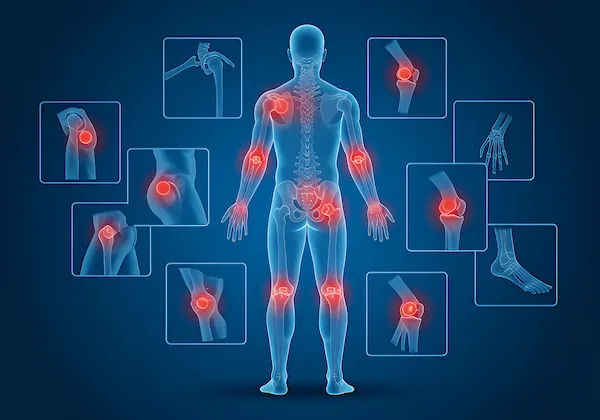Understanding the Tdap Vaccine
Know about the tdap vaccine, what is it, who needs it and who should get it, how often it gets done, why it is important, possible side effects and tips for managing it.

Written by Dr. D Bhanu Prakash
Reviewed by Dr. Dhankecha Mayank Dineshbhai MBBS
Last updated on 13th Jan, 2026

Introduction
Vaccines are one of the most effective ways to protect ourselves and our loved ones from serious diseases. One such important vaccine is the Tdap vaccine, which guards against three dangerous infections: Tetanus, Diphtheria, and Pertussis (Whooping Cough).
If you're unsure about what this vaccine is, why it’s needed, or who should get it, this guide will help you understand everything in simple terms.
What is the Tdap Vaccine?
The Tdap vaccine is a combination vaccine that protects against three bacterial infections:
1. Tetanus (Lockjaw) – A serious infection caused by bacteria found in soil, dust, and manure. It affects the nervous system, causing painful muscle stiffness and spasms, which can be life-threatening.
2. Diphtheria – A contagious bacterial infection that affects the throat and nose, making it hard to breathe. It can also damage the heart and nerves.
3. Pertussis (Whooping Cough) – A highly contagious respiratory infection that causes severe coughing fits, making it difficult to breathe, especially in infants and young children.
The vaccine helps your body build immunity against these diseases so that if you’re ever exposed, your immune system can fight them off effectively.
Consult a top general practitioner for the best advice
Who Needs the Tdap Vaccine?
The Tdap vaccine is recommended for:
Adults and Teens (11 years and older) – A single dose is usually given as a booster to maintain immunity.
Pregnant Women – Getting the vaccine during each pregnancy (preferably between 27 and 36 weeks) helps protect newborns from whooping cough.
New Parents and Caregivers – Anyone who will be in close contact with a baby (grandparents, siblings, babysitters) should get vaccinated to prevent spreading infections.
People with Wounds or Injuries – If you have a deep or dirty wound and haven’t had a tetanus shot in the last 5 years, you may need a Tdap booster.
How Often Should You Get the Tdap Vaccine?
The frequency of tdap vaccine is:
Teens and Adults – One dose of Tdap is recommended, followed by a Td (Tetanus-Diphtheria) booster every 10 years.
Pregnant Women – One dose during each pregnancy, even if previously vaccinated.
Children – Babies receive a similar vaccine called DTaP (given in five doses at 2, 4, 6, and 15-18 months, and 4-6 years).
Why is the Tdap Vaccine Important?
Tdap is important because:
1. Protects Vulnerable Groups – Newborns and elderly individuals are at higher risk of severe complications from these diseases. Vaccination helps prevent outbreaks.
2. Prevents Severe Illness – Tetanus and diphtheria can be deadly, while whooping cough can cause serious breathing problems in babies.
3. Community Immunity – When more people are vaccinated, the spread of disease slows down, protecting those who can’t get vaccinated (like infants or people with weak immune systems).
Possible Side Effects of the Tdap Vaccine
Like all vaccines, the Tdap vaccine may cause mild side effects, which are normal and usually go away in a few days. These include:
Soreness, redness, or swelling at the injection site
Mild fever or headache
Tiredness or body aches
Severe allergic reactions are very rare, but if you experience difficulty breathing, swelling of the face, or a high fever, seek medical help immediately.
Myths vs. Facts About the Tdap Vaccine
Myth: "Vaccines cause autism."
Fact: There is no scientific evidence linking the Tdap vaccine (or any vaccine) to autism.
Myth: "If I had the vaccine as a child, I wouldn't need it again."
Fact: Immunity weakens over time, so booster shots are necessary for continued protection.
Myth: "The vaccine can give me the disease."
Fact: The Tdap vaccine contains inactive or weakened parts of the bacteria, so it cannot cause the actual disease.
Tips for Managing Vaccine Side Effects
The tips for managing vaccine side effects include:
Apply a cool, damp cloth to reduce soreness at the injection site.
Drink plenty of fluids and rest if you feel tired.
Take over-the-counter pain relievers (like acetaminophen) if needed, but avoid aspirin for children.
When to Consult a Doctor?
If you or your child:
Have a history of severe allergic reactions to vaccines.
Are feeling very sick (high fever, seizures, or extreme swelling).
Have a weakened immune system due to illness or medications.
It’s always best to check with your doctor before getting vaccinated.
How to Get the Tdap Vaccine?
Getting vaccinated is easy! You can:
Visit your nearest Apollo 24|7 clinic
Book an appointment online through the Apollo 24|7 app or website
Check with your family doctor for availability
Final Thoughts
The Tdap vaccine is a safe and effective way to protect yourself and your loved ones from serious diseases. Whether you're a new parent, a grandparent, or just due for a booster, staying up-to-date with vaccinations ensures a healthier life for everyone.
Consult Top Specialists
Consult a top general practitioner for the best advice

Dr. Mainak Baksi
General Practitioner
13 Years • MBBS , MD (MPH)
Howrah
Mainak Baksi Clinic, Howrah
(50+ Patients)

Dr. Rajib Ghose
General Physician/ Internal Medicine Specialist
25 Years • MBBS
East Midnapore
VIVEKANANDA SEBA SADAN, East Midnapore

Dr. Anindita Mondal
General Physician/ Internal Medicine Specialist
8 Years • MBBS
Kolkata
VDC Clinic, Kolkata

Dr. Anamika Krishnan
General Practitioner
11 Years • MBBS, DNB (Paediatrics) ,Diploma in child Health
Bengaluru
UMC (United Medical Center), Bengaluru

Dr. Ashita Kuruvilla
General Practitioner
7 Years • MBBS
Kolkata
KVC CLINIC, Kolkata
Consult Top Specialists

Dr. Mainak Baksi
General Practitioner
13 Years • MBBS , MD (MPH)
Howrah
Mainak Baksi Clinic, Howrah
(50+ Patients)

Dr. Rajib Ghose
General Physician/ Internal Medicine Specialist
25 Years • MBBS
East Midnapore
VIVEKANANDA SEBA SADAN, East Midnapore

Dr. Anindita Mondal
General Physician/ Internal Medicine Specialist
8 Years • MBBS
Kolkata
VDC Clinic, Kolkata

Dr. Anamika Krishnan
General Practitioner
11 Years • MBBS, DNB (Paediatrics) ,Diploma in child Health
Bengaluru
UMC (United Medical Center), Bengaluru

Dr. Ashita Kuruvilla
General Practitioner
7 Years • MBBS
Kolkata
KVC CLINIC, Kolkata




